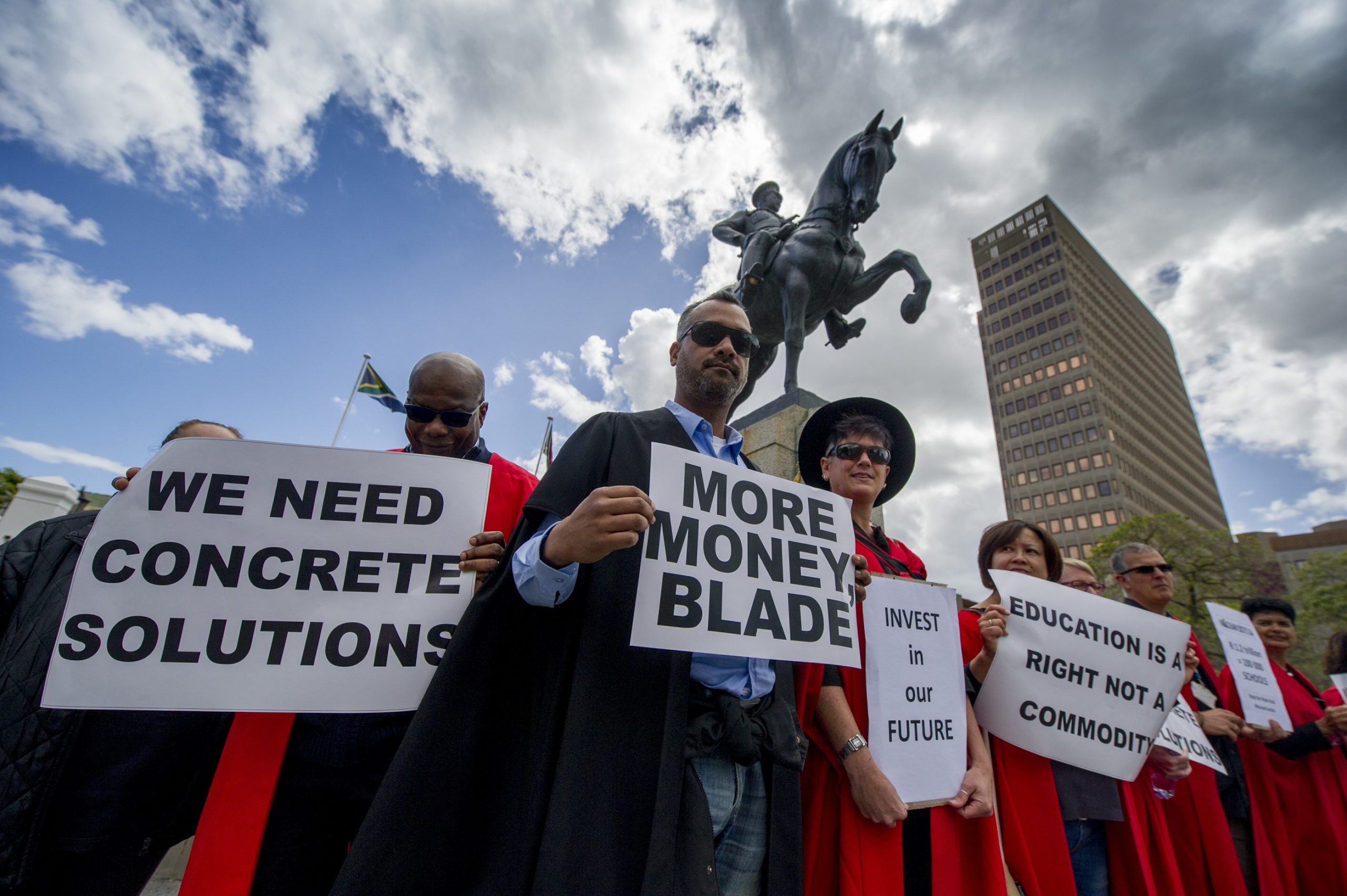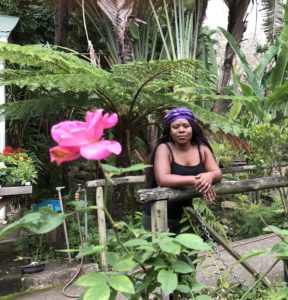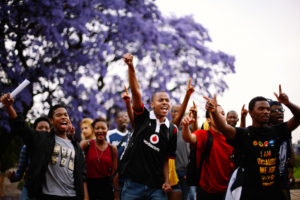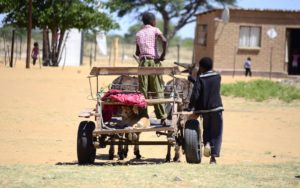The joy of inclusive academia

22092016 NETWERK24 Dosente en personeel van die Universiteit van Kaapstad asook studente van die Universiteit Stellenbosch betoog buite die Parlement in Kaapstad oor die voorgestelde verhoging in klasgelde asook die swak finansiering van tersiere instansies deur die regering. Die studente het die desente en personeel daarvan beskuldig dat hulle die #feesmustfall-veldtog probeer kaap. foto: Jaco Marais
In the second week of the current #FeesMustFall protests at the University of the Witwatersrand, three black Fallist feminists and I attended an all-woman intergenerational conversation and dinner. In our attempts to secure support for the movement, an older black woman, who works in the private sector, remarked: “Your message is complicated and unclear… What is this decolonial education that you want with free education?”
Perhaps the lack of clarity arises because our universities “went ahead and instituted interdicts – some were made permanent – and went to sleep on the decolonisation question”, as noted recently by Dr Nomalanga Mkhize, a history lecturer at Rhodes University in Grahamstown.
Those with institutional and executive power in universities might have neglected the urgent call for a decolonial curriculum, but pockets of black academics such as Mkhize, Gcobani Qambela, Siphokazi Magadla, Lwazi Lushaba and Joel Modiri – teaching at various universities in South Africa – are designing academic curriculums that have met this call.
Prompted by growing impatience with the slow pace of change within departments in the faculty of humanities at Wits University, a group of black postgraduate students – myself included – have independently joined the department of African literature. To paraphrase US author and feminist bell hooks, it is a space where our devotion to learning is met by the centring of black lived experience and intellectual traditions.
For the first time at Wits, I have been lectured by only black academics this year. They are Dr Danai Mupotsa, Professor Bheki Peterson and Professor Pumla Gqola.
Most of us had never taken a course in the department, but we could no longer wait for our former departments to break away from the dominance of white male academics; for them to shift from their privileging of a Eurocentric approach to teaching and learning.
When challenged about deliberately excluding black intellectual work and theory from their curriculum, white academics often argue that there is little to no “quality” intellectual production coming from black scholars and researchers that could add value to their courses.
The erasure of that work is challenged in our department as black scholars, activists and artists from the continent and diaspora are cited in abundance.
It serves whiteness to perpetuate the myth that black people have not reflected and theorised about their own political and historical moments. It allows for the continued privileged position of white academics to research and write about black experiences.
As hooks argues: “To teach in a manner that respects and cares for the souls of our students is essential if we are to provide the necessary conditions where learning can most deeply and intimately begin.”
I have witnessed such forms of intimacy between black academics and students. One PhD candidate in the politics department remarked that he saw Professor Peterson as “a bra”, evoking a genealogy of intimacies between older and younger black men in our townships and rural areas. A big brotherhood. It is a relationship that is rare in our institutions because of our continued structural exclusion.
Although not formally registered with the African literature department, the candidate sits in our classes and finds pleasure in reading different course materials.
Nurtured forms of intimacy are also reflected in Professor Gqola’s open-office approach. Although this can be challenging for a busy individual, she once affirmed: “I understand why a black student needs to come to my office to just sit here and talk.”
In the lecture room, Gqola is able to affirm black students while critically engaging their work. She arrives at this through the black feminist practice of care, through teaching methods that do not derive pleasure from dominating students in learning environments.
For postgraduate studies, research supervision is crucial. The relationship one has with one’s supervisor can make or break one’s output and academic progress.
Dr Mupotsa supervises seven of us – one honours student, four master’s candidates and two PhD ones – all black students from different parts of the continent.
Dr Mupotsa uses a collaborative cohort supervision method to create a learning community. It is not new; I have seen it practised by white lecturers in many departments. The difference here is a constant alertness against forms of exclusion within our group dynamics.
For instance, a meeting time in the late afternoon was proposed by a student who lives in the north and owns a car. Dr Mupotsa immediately highlighted why that time would be exclusionary to some of us who use public transport and our cohort members who live in Soweto.
Joining the African literature department has highlighted for me the necessity of a decolonised university. Spaces that affirm black intellectual and creative work cannot continue being unique to just a few departments like this one.
* This article originally appeared in City Press.




